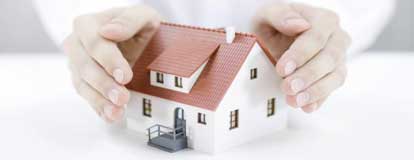Here are some helpful tips to reduce your chances of being a burglary victim
In This Page |
 |
Doors, Windows, Locks and Keys
- All doors that lead to the outside should be metal or solid-core, 1-3/4 inch hardwood. Most hollow doors can be easily broken through
- Each door should fit in its frame with no more than 1/8 inch clearance between the door and frame. A metal lining on the inside of an exterior door can prevent drilling, sawing, or kicking through
- Make sure all doors to the outside have good locks--deadbolt locks with a minimum 1-1/2 inch bolt. Make sure locks are also installed on screen and storm doors, garage doors, cellar doors, patio doors, and any other door that leads to the outside ( including second-floor patios or decks.
- Always use the locks you have, on both your home and your garage. Lock up every time you go out, even if it's only for a few minutes. Almost 50 percent of burglars enter homes or property through unlocked doors or windows.
- Locks on doors should be placed at least 40 inches away from windows, glass panels, and other potential openings such as mail slots. Make it hard for a burglar to reach in and unlock your door. Or install double cylinder, deadbolt locks that need to be opened with a key from the inside as well as the outside.
- Door hinges should always be on the inside and designed so that hinge pin cannot be removed from the outside.
- Never hide keys outside, such as under a bush or in a flower pot. Burglars know where to find "secret" hiding places. It's much better to leave a key with a trusted neighbor.
- Don't place identification tags on your keys or key rings; if you lose them, you give potential burglars help.
- Secure sliding glass doors with commercially available bars or locks, or put a wooden dowel or broom handle in the door track. Burglars look for sliding glass doors because they are the easiest to open.
- Secure roof openings and exhaust systems.
- Make sure windows, especially those at ground level, have good locks- and always use the locks you have.
- The center thumb- turn locks on many standard windows can be easily pried open or reached through a broken pane. For especially vulnerable windows, install key locks or consider installing grates or grilles ( but make sure the devices can be easily detached to allow quick escape during a fire or other emergency). Glass block windows offer excellent security for basement windows.
Shrubbery and Lighting
Make sure all porches and other possible entrances are well lit, with at least 40-watt bulbs. A well-lit house is far better protected than a house without lights.
Overgrown bushes, tree limbs, or landscaping can provide cover for burglars. Trim them to the height of porches or windows.
Other Tips
- Always lock up ladders and tools. Don't give a burglar the resources to break into your home.
- Window air conditioning units should be bolted to the wall to prevent them from being easily removed from the outside.
- If you have recently purchased a television, stereo equipment, or other household item, do not throw the empty boxes in the alley garbage. This is a sure sign and strong temptation for burglars.
- Turn the ringer on the telephone down low. If a burglar is around, he won't be alerted to your absence by a ringing phone.
- If you are out during the day or on vacation, use an automatic timer to turn on lights and a radio at different times of the day. It is an easy way to disguise the fact that you aren't home.
- Have a trusted neighbor pick up your mail and newspapers every day while you are on vacation. Have a neighbor use your garbage cans occasionally.
- During the winter, arrange to have snow shoveled.
When You Are Home Alone
- Don't open the door for anyone you don't know.
- Keep the doors and windows locked. Ask your parents to teach you how to open and lock the doors and windows.
- NEVER let anyone into your home to use your phone, bathroom, or anything else. Your home is not a public phone booth or a public restroom. If there is an emergency outside your home, call 911 for help and tell the police what is going on.
- The police will send someone to your home.
- If you call 911 for help, DON'T hang up the phone. Leave the receiver off the hook and dangling after you talk to us. This way, the police can still hear you in case anything happens before help arrives.
- Don't talk to strangers on the phone. And NEVER tell the person on the phone that your parents are not home and that you are alone. Tell the person that your parents are not able to come to the phone at this moment, that you will take their name and number, and that your parents will return their call when they can.
- If there is someone hanging around near your home, call for help by dialing 911. Tell the dispatcher what the person is doing and give a description of the person. Help will be sent to you.
- Never play with matches.